A system of four masses , my two springs and a fixed pulley is shown in figure. The system is kept at rest by attaching the lower thread to a rigid peg. Determine the acceleration of all the masses after the lower thread has been cut. The springs are massless, pulley is frictionless and massless.
Clearly .
Let be the tension in left spring and that in right spring and T is tension in the string passing over the pulley .
Then for equilibrium of system
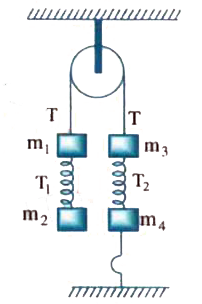
...........(2)
and
From last equation
........ (3)
After the lower thread is cut off
Equation of motion of mass is
.......... (4)
Equation of motion of mass is
...........(5)
Equation of motion mass is
............. (6)
Equation of motion of mass is
............. (7)
Using (1) , (2) and (3) we get
Topper's Solved these Questions
- BOOK - AAKASH SERIESCHAPTER - LAWS OF MOTIONEXERCISE - LONG ANSWER TYPE QUESTIONS2videos
LAWS OF MOTION
- BOOK - AAKASH SERIESCHAPTER - LAWS OF MOTIONEXERCISE - SHORT ANSWER TYPE QUESTION2videos
LAWS OF MOTION
- BOOK - AAKASH SERIESCHAPTER - KINETIC THEORY OF GASESEXERCISE - Practice Exercise15videos
KINETIC THEORY OF GASES
- BOOK - AAKASH SERIESCHAPTER - MECHANICAL PROPERTIES OF FLUIDS EXERCISE - EXERCISE-343videos
MECHANICAL PROPERTIES OF FLUIDS
Similar Questions
Four blocks and two springs are arranged as shown in fig. The system at rest, determine the accelration of all the loads immedialtely after the lower thread keeping the system in equilibrium has been cut. Assume that the threads are weightless, the mass of the pulley is negligible small, and there is no friction at the point of suspension.
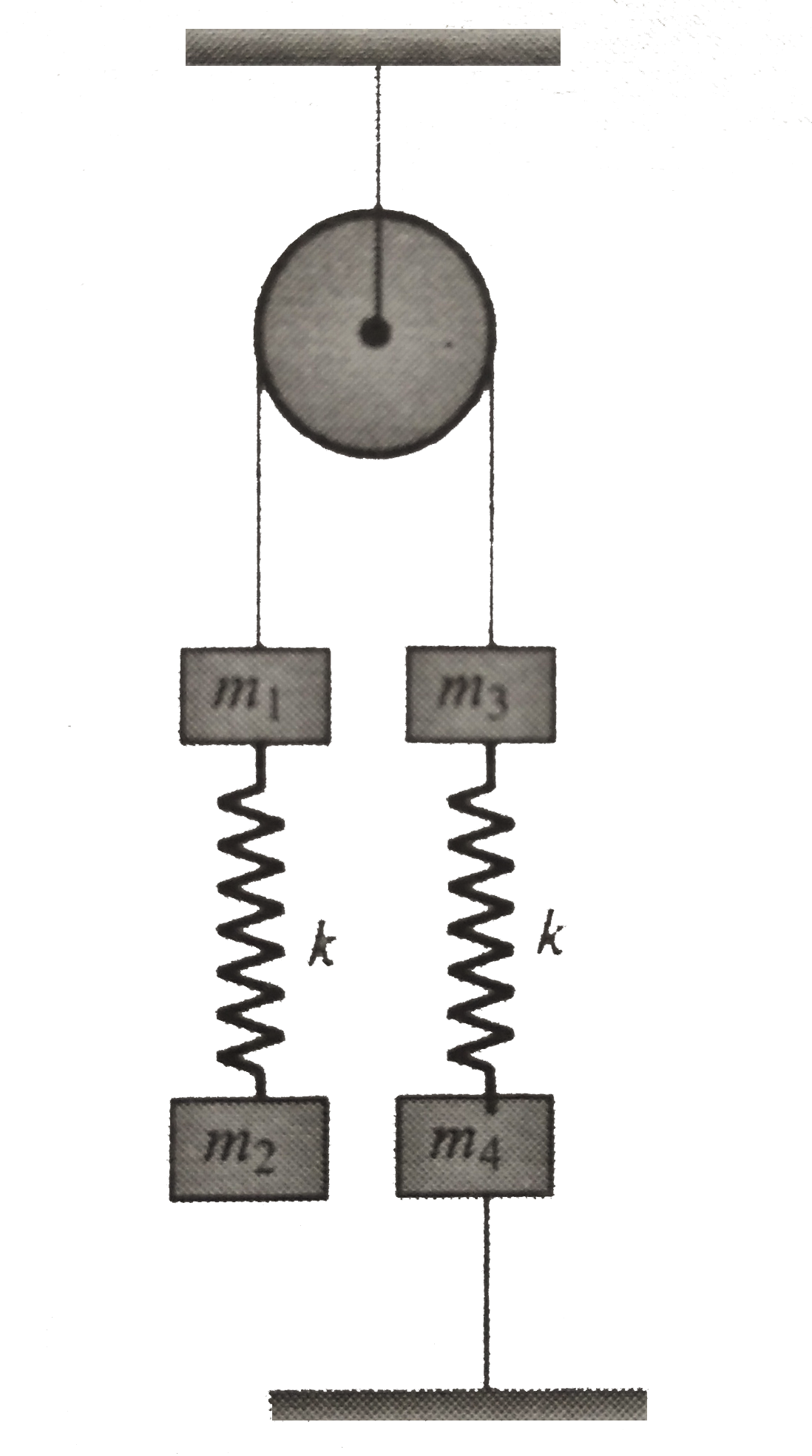 View Solution
View SolutionTwo bodies with masses m1 and m2(m1>m2) are joined by a string passing over fixed pulley. Assume masses of the pulley and thread negligible. Then the acceleration of the centre of mass of the system (m1+m2) is
View Solution
Knowledge Check
- Question 1 - Select One
In the system shown in fig. m1>m2 . The system is held at rest by thread BC. Now thread BC is burnt. Answer the following:
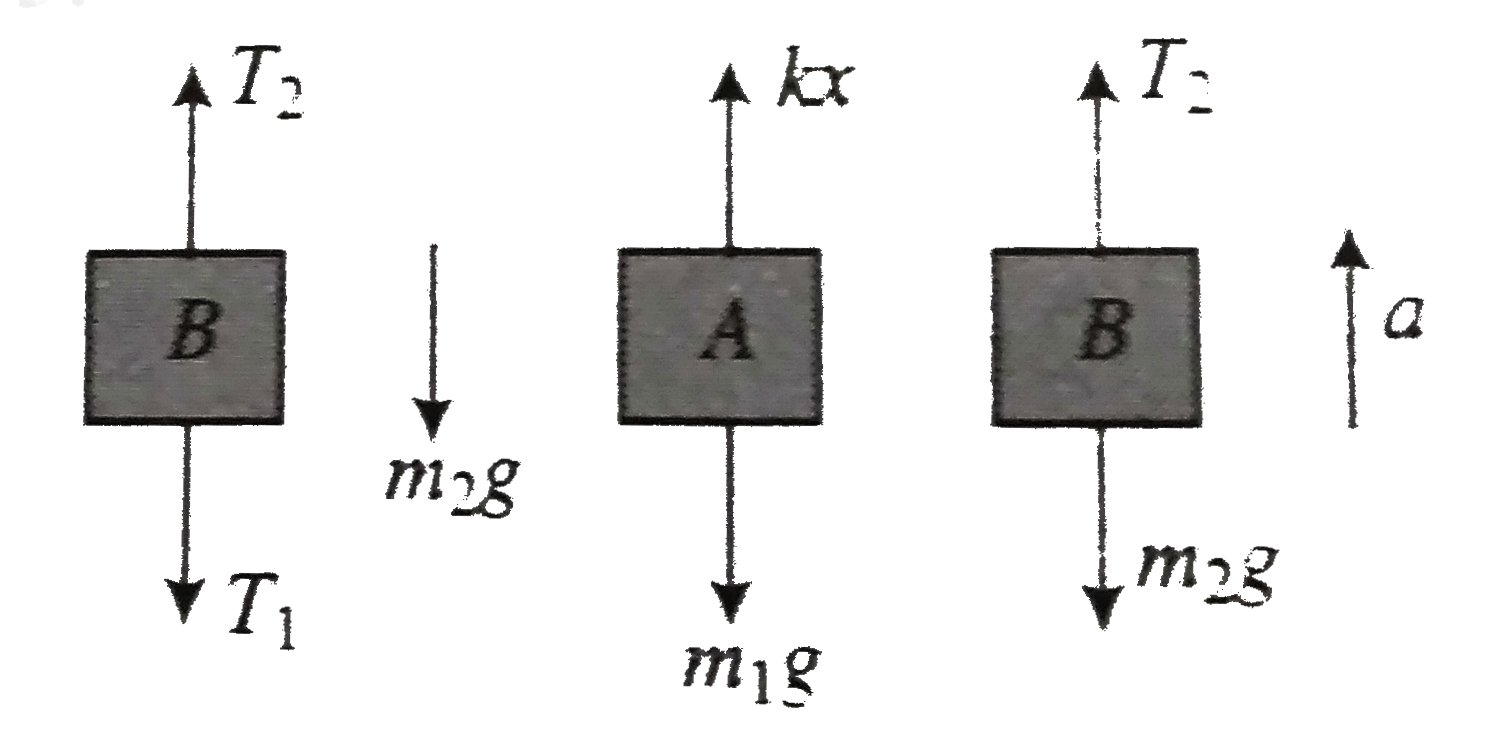
Just after burning the thread, what is the tension in the spring?Am1gBm2gCZeroDCannot say - Question 2 - Select One
Find the acceleration of the block of mass m. Assume pulleys are massless and frictionless.
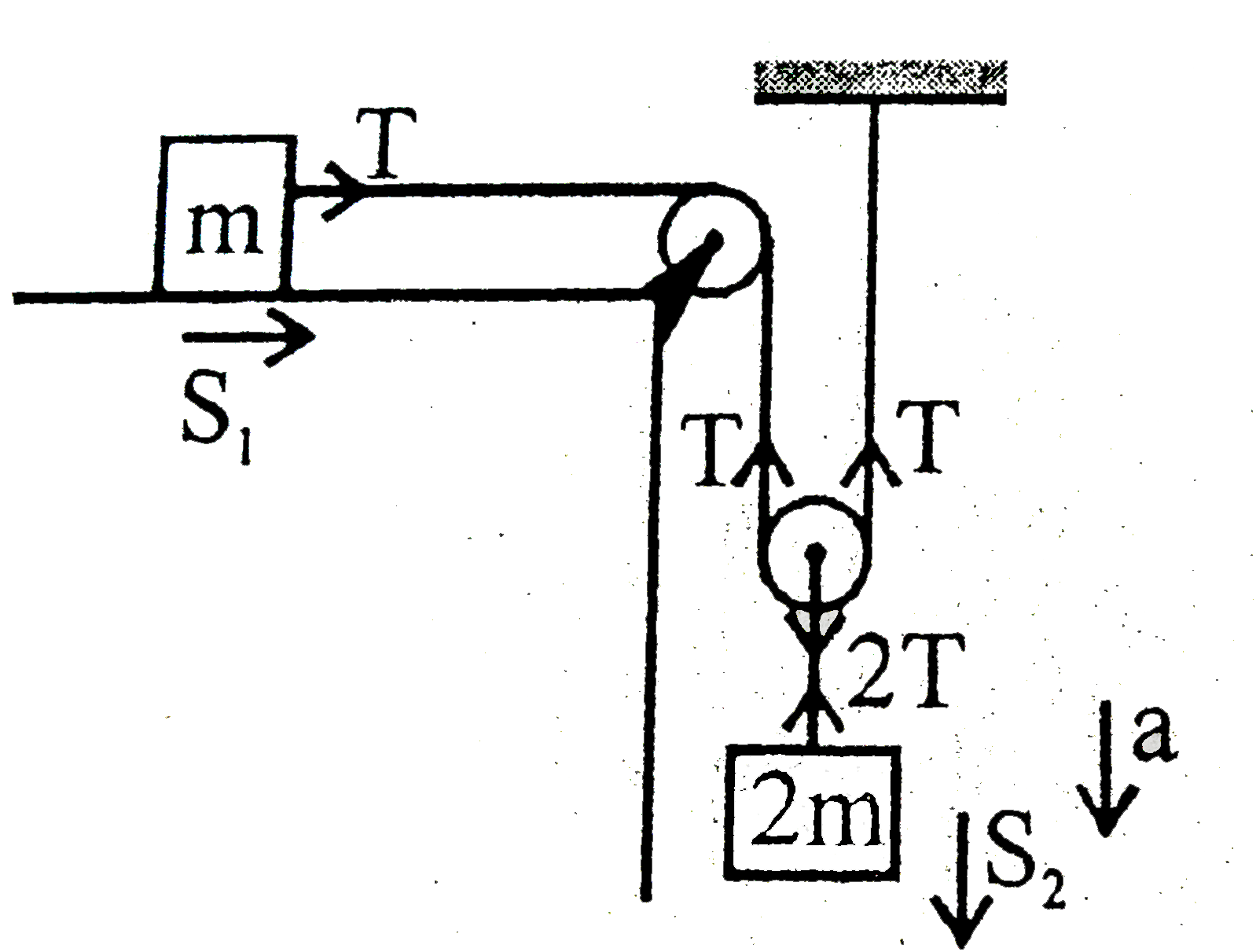 Ag/3B2g3Cg2DNone
Ag/3B2g3Cg2DNone - Question 3 - Select One
Two bodies with masses m1 and m2(m1>m2) are joined by a string passing over fixed pulley. Assume masses of the pulley and thread negligible. Then the acceleration of the centre of mass of the system (m1+m2) is
A(a) (m1−m2m1+m2)gB(b) (m1−m2m1+m2)2gC(c) m1gm1+m2D(d) m2gm1+m2
System shown in fig is in equilibrium and at rest. The spring and string are massless now the string is cut. The acceleration of mass 2m and m just after the string is cut will be:
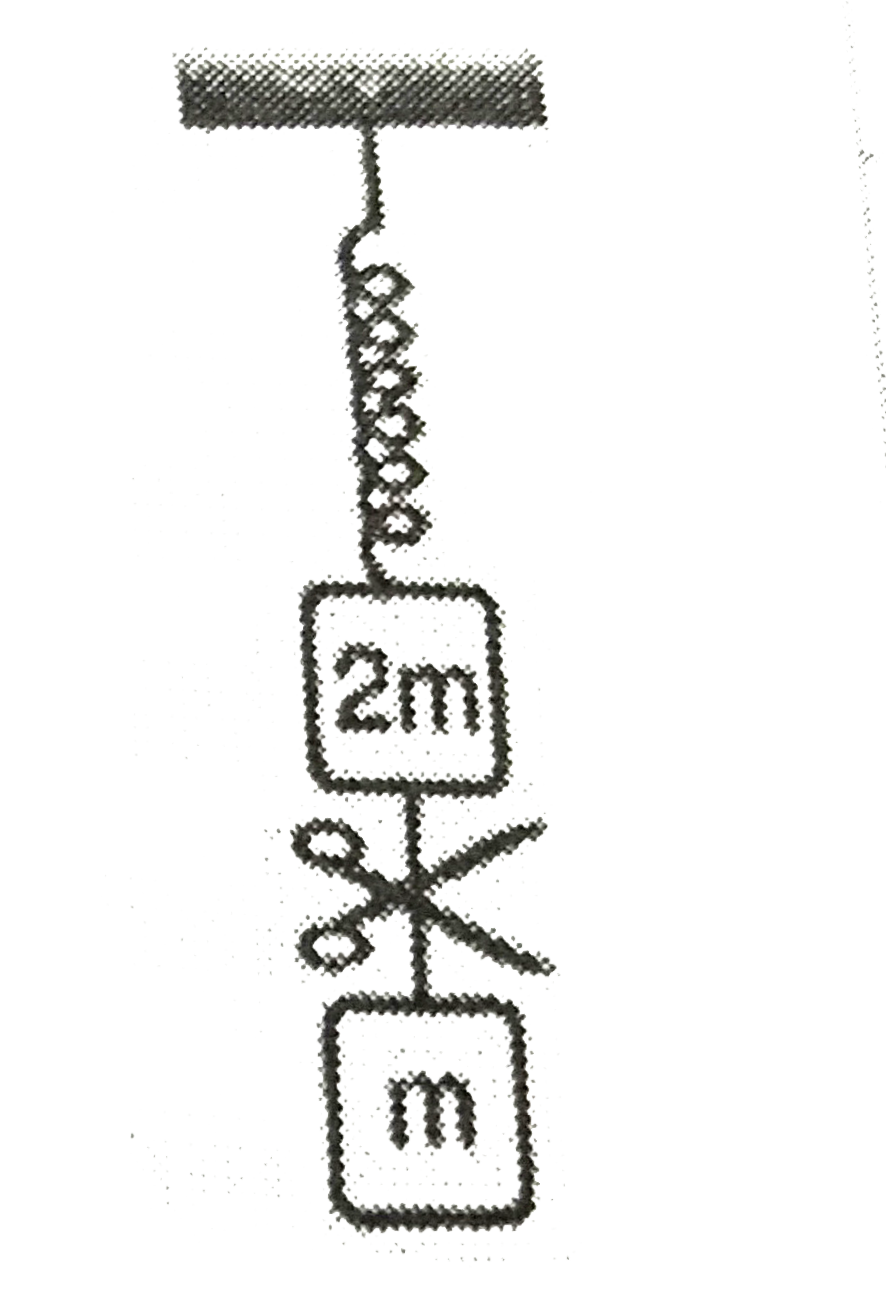 View Solution
View SolutionSystem shown in fig is in equilibrium and at rest. The spring and string are massless now the string is cut. The acceleration of mass 2m and m just after the string is cut will be:
 View Solution
View SolutionMasses m1,m2,m3 and m4 are arranged in a system as shown in fig where m1+m2>m3+m4 The lower string keeping the system in equilibrium is burnt The masses start moving. Find the acceleration of masses if the threads are weightless and inextensible the springs are also weightless and the mass of the pulley is negligible.
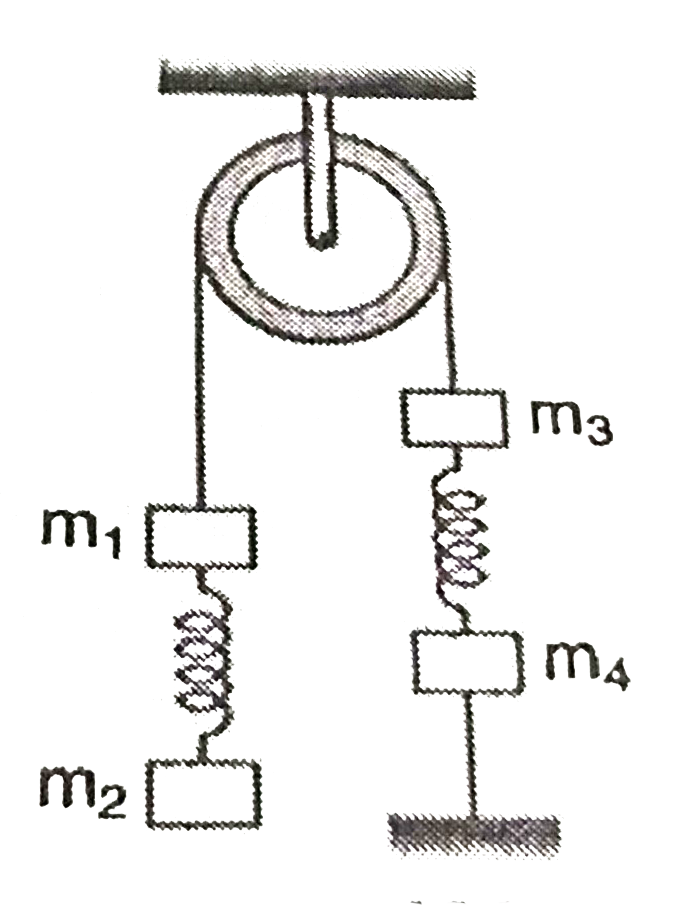 View Solution
View SolutionFind the natural frequency of the system as shown in the figure. The pulleys are massless and frictionless.
(Take k=9π2N/m and m=4kg)
 View Solution
View SolutionSystem shown in fig is in equilibrium and at rest. The spring and string are massless now the string is cut. The acceleration of mass 2m and m just after the string is cut will be:
 View Solution
View Solution
